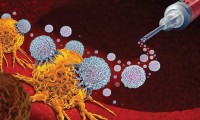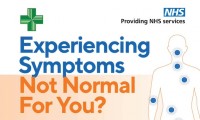-
Unitaid funds over £6m to Liverpool researchers to treat major diseases
- Source: drugdu
- 386
- April 10, 2024
-
Alliance Healthcare launches cancer symptom referral scheme in UK pharmacies
- Source: drugdu
- 347
- April 10, 2024
-
Regular late-life exercise has a beneficial impact on DNA damage and telomere dysfunction
- Source: drugdu
- 316
- April 9, 2024
-
Heavy alcohol use linked to increased risk of Type 2 diabetes in middle-aged adults
- Source: drugdu
- 369
- April 9, 2024
-
FDA Approves Abecma for Patients with Relapsed or Refractory Multiple Myeloma Following Two Prior Lines of Therapy
- Source: drugdu
- 243
- April 9, 2024
-
Diagonal Therapeutics’ New Slant Attracts $128M to Reactivate Antibody Drug R&D
- Source: drugdu
- 515
- April 9, 2024
-
Touchlight joins forces with University of Liverpool for NSCLC vaccine
- Source: drugdu
- 283
- April 9, 2024
-
AstraZeneca reports positive Phase III results for Imfinzi in small cell lung cancer
- Source: drugdu
- 360
- April 9, 2024
-
Study reveals new aptamer targeting tool can detect early signs of motor neurone disease
- Source: drugdu
- 435
- April 9, 2024
-
KCL project receives £100,000 UK government funding to boost AI-assisted healthcare
- Source: drugdu
- 609
- April 9, 2024
your submission has already been received.
OK
Subscribe
Please enter a valid Email address!
Submit
The most relevant industry news & insight will be sent to you every two weeks.

















